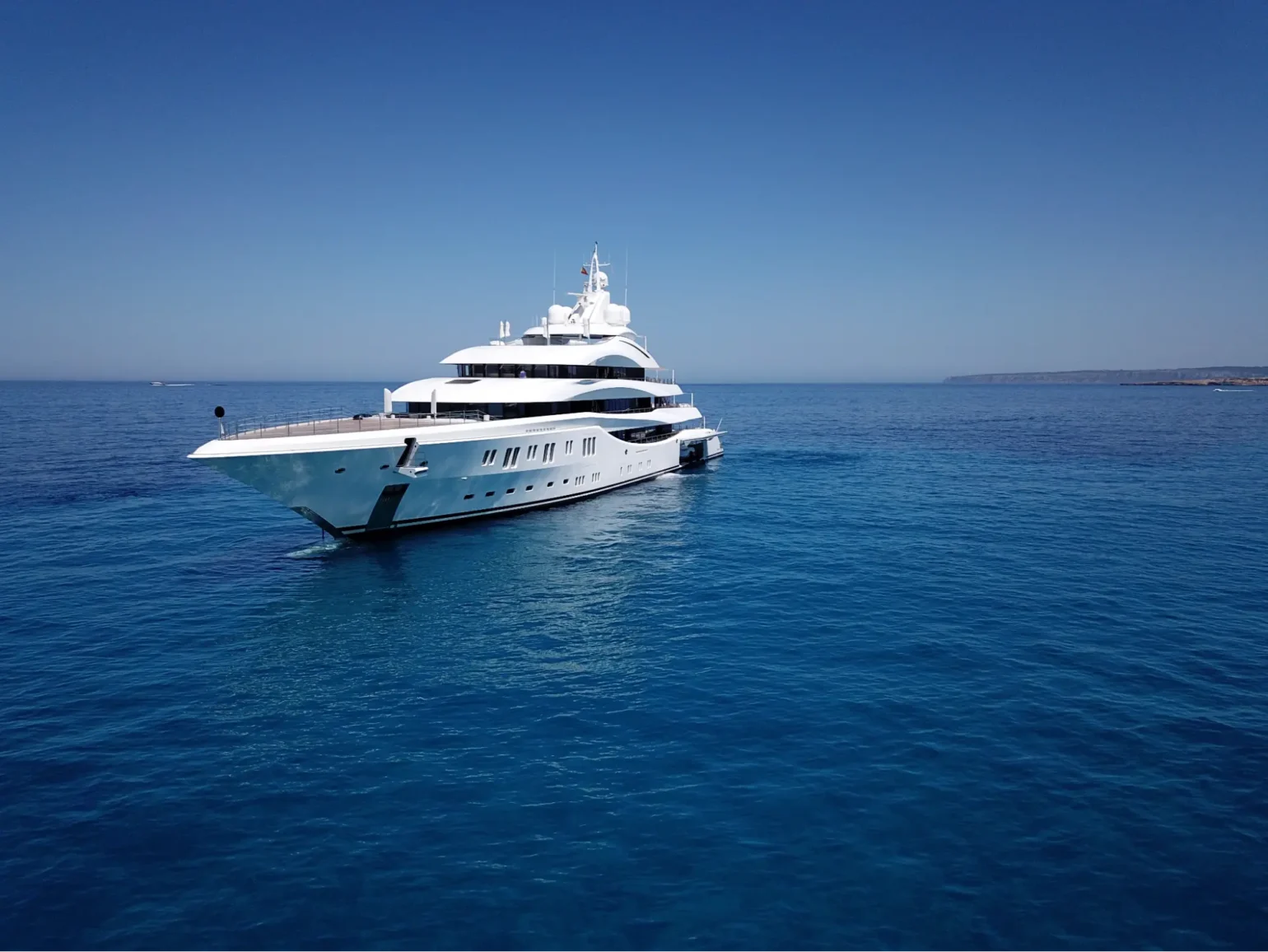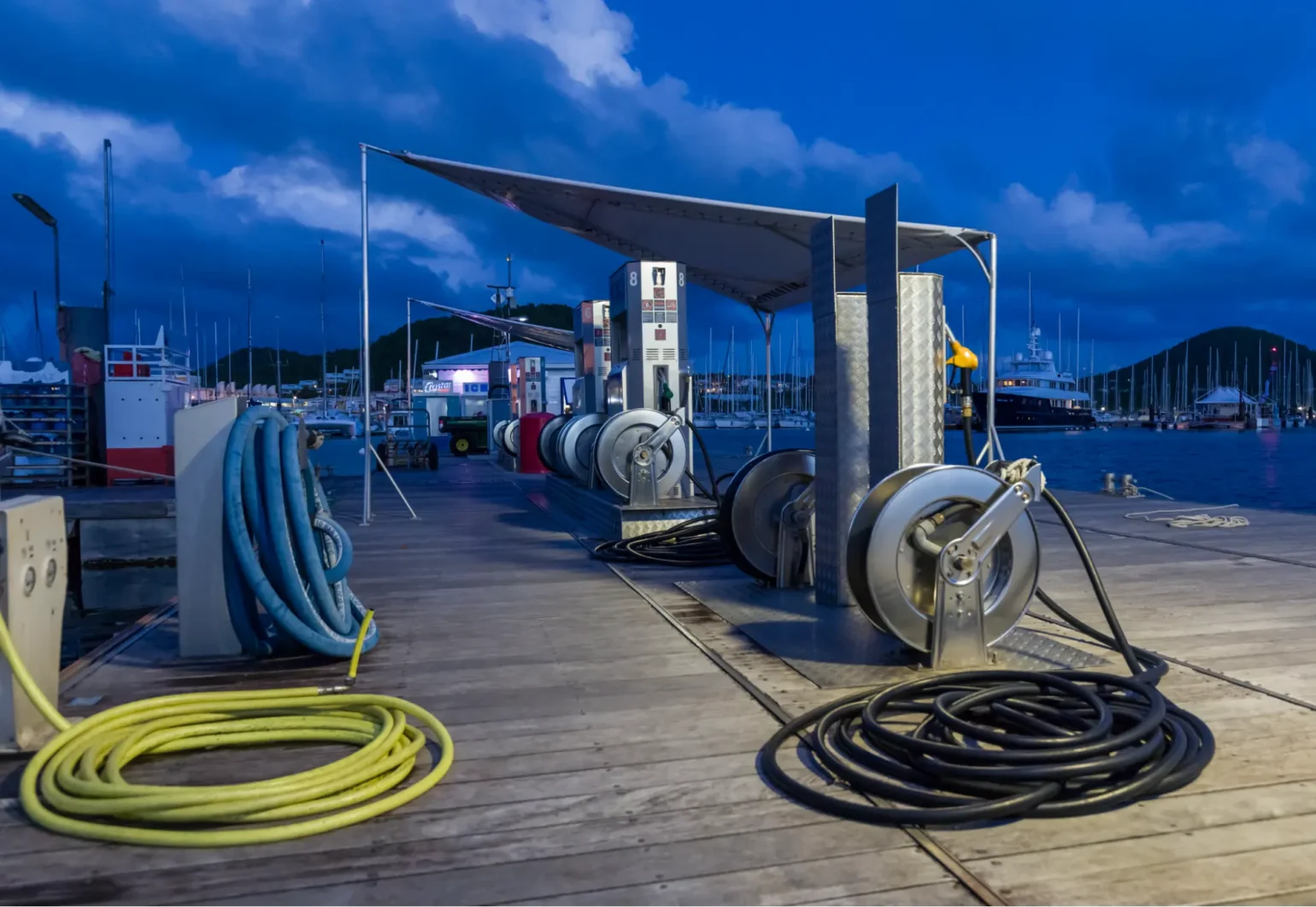
Hushed, limitless, and environmentally friendly are words that have long not been associated with the superyacht industry. Nevertheless, the notion of hydrogen fuel cell technology, which exudes a science-fiction aura, is teetering on the edge of transforming into a constant presence in the realm of yachting. In an industry traditionally characterised by its gradual embrace of technological innovations, the adoption of such pioneering energy on a superyacht commanding a price tag in the millions signifies a bold and financially audacious move. Yet, despite this, four shipyards are boldly equipping their new maritime creations with fuel cells. The inaugural launch is anticipated in 2024, with the potential to become the new go-to fuel type, further paving the way towards maritime sustainability.
The progression of yachts throughout the decades has upheld a consistent element since nearly its inception: the utilisation of the internal combustion engine, powered by a variant of gasoil (or diesel) as its fuel source. While there have been sporadic instances of deviation, such as the incorporation of gas turbines, an overwhelming 99.9% of the existing fleet presently relies on diesel as its predominant onboard fuel. But, with groundbreaking advances happening regularly, it wouldn’t be a surprise to see more and more new builds being designed with hybrid options.
When considering the efficiency, power output, fuel tank capacity, and size of a superyacht, the strong connection between propulsion and fuel is apparent. Nonetheless, with the global shift away from fossil fuels and towards a more ecologically viable tomorrow, the yachting sector confronts an unprecedented transformation – the imperative to shift away from diesel superyacht fuel. In the world of yachting, we are privileged to have visionary owners who are willing to explore the boundaries of innovation. The advancement of forthcoming technology destined for future yachts has consistently existed in a distinctive group of superyacht owners; unafraid to embrace risk and introduce unprecedented technology to the yachting realm. This parallels the ongoing transformation within fuel and propulsion systems.

Undoubtedly, this form of innovation plays a vital role in advancing the technologies necessary for achieving long-term objectives and net-zero aspirations. Sustainability is at the heart of what we do at Peninsula, and so we wholeheartedly support the advancement of systems that can make yachting more environmentally friendly. Nevertheless, in the immediate future, the supply-chain infrastructure is lacking to support the widespread production of these novel marine fuels for all shipyards to fully embrace this style of fuel for their new builds. It’s easy to be drawn in by the announcements from industry giants about their methanol-powered ships, leading to assumptions of ample fuel availability for methanol-driven yachts. However, yachts don’t engage in bunkering procedures akin to container ships, and the yacht industry alone lacks sufficient influence to justify the bespoke development of a supply network solely for yachts.
In contrast, biodiesels hold promise for use in existing land-based diesel engines and generators that currently consume conventional marine fuels. Thus, it’s probable that we will observe the gradual evolution of the conventional diesel supply chain network, serving the shift in land-based consumption. In the short term, it seems more plausible to anticipate the emergence of a biodiesel distribution system capable of supporting superyacht demand, rather than the introduction of an entirely new superyacht fuel variant. Over the long term, if the ongoing trend toward electrification continues on land, the number of truck suppliers will naturally dwindle, potentially leaving yachting susceptible to a shortage of accessible suppliers.
Working with biofuels creates an ideal middle ground between sustainability and availability. Reports from engine manufacturer Caterpillar and the fuel’s producer, Fioul 83, indicate a spike in interest surrounding HVO (hydrotreated vegetable oil) fuel intended for superyachts. HVO, a progressive biofuel, originates from sustainable raw materials like vegetable oils and animal fats. Through a hydrogenation procedure that eliminates impurities and refines the molecular composition, it transforms into a premium, eco-friendly fuel resembling diesel. HVO has a significantly lower carbon footprint compared to traditional fossil diesel. It produces fewer greenhouse gas emissions, particulate matter, and other harmful pollutants, contributing to cleaner air and a reduced environmental impact. An additional and major benefit to using HVO is its application in current diesel engines without necessitating alterations to the engine or refuelling systems. This allows captains of superyachts with older engines to make more sustainable decisions when purchasing fuel, without having to make costly upgrades.

As the global community strives to diminish carbon emissions, the maritime sector faces mounting pressure to transition from its reliance on fossil fuel-consuming mechanisms for transporting people and cargo. However, throughout numerous decades, all yachts have relied on essentially identical propulsion systems, consuming the same type of fuel. This uniformity has enabled them to procure superyacht fuel from virtually any location globally. However, if we were to establish a forthcoming fleet dependent on an assortment of fuel and energy types, there exists a potential hazard of disintegrating the fuel supply network to an extent where superyachts would lose their ability to navigate freely to any desired destination.
Peninsula strives to be at the forefront of innovation when it comes to developments in the maritime industry, specifically within marine fuel. Through the years we have pioneered new fuels with our focus firmly on sustainability. This is why we are excited about what the future of superyacht fuel has to hold. With the hydrogen fuel cell promising no noise or vibration we do not doubt that this could be a real breakthrough in sustainable superyacht development. However, until there is a way to incorporate these systems into older vessels, we will continue to research, test, and develop the best available options for second-generation biofuels.
If you’re interested in learning more about Peninsula, our services, or our promise to the environment; please don’t hesitate to get in contact. We have a team of experts working 24/7 to ensure we can deliver the incredible service we are known for.

